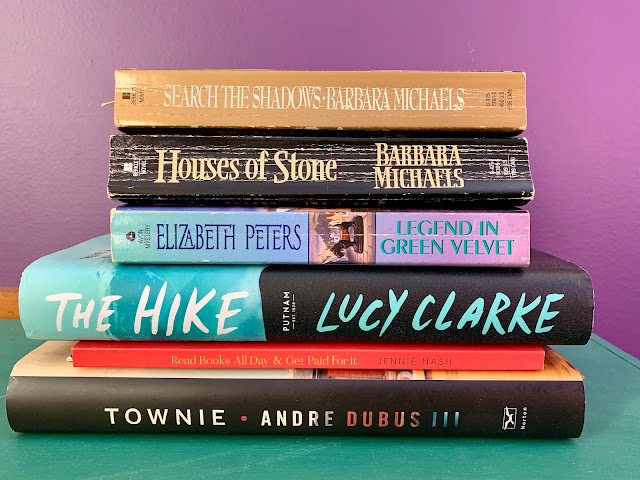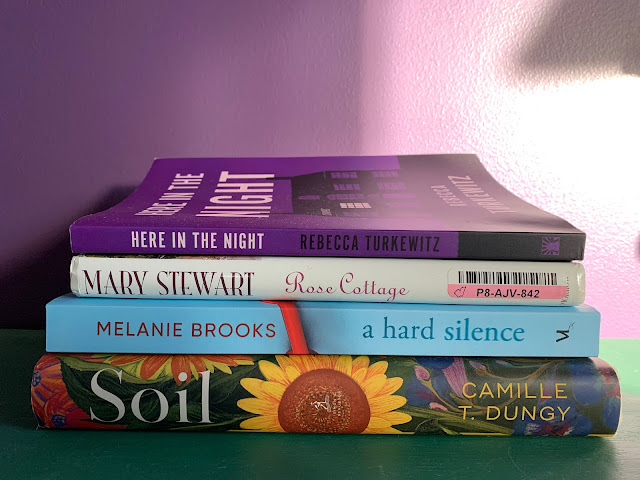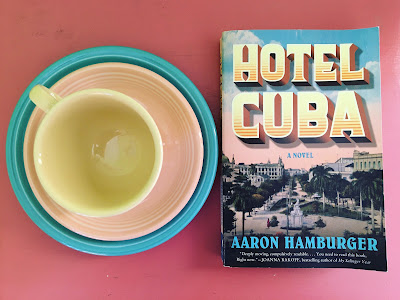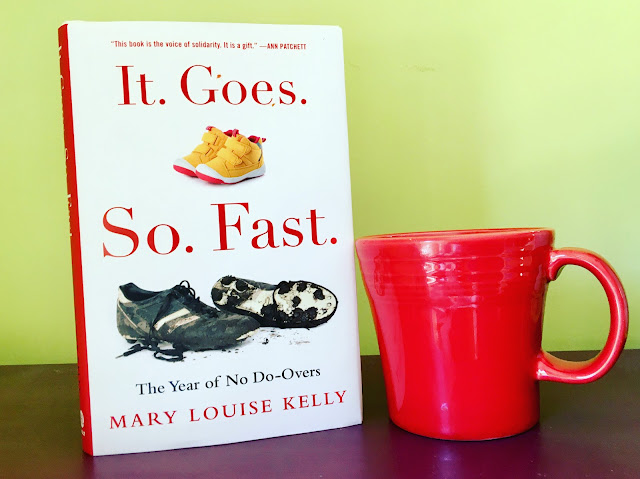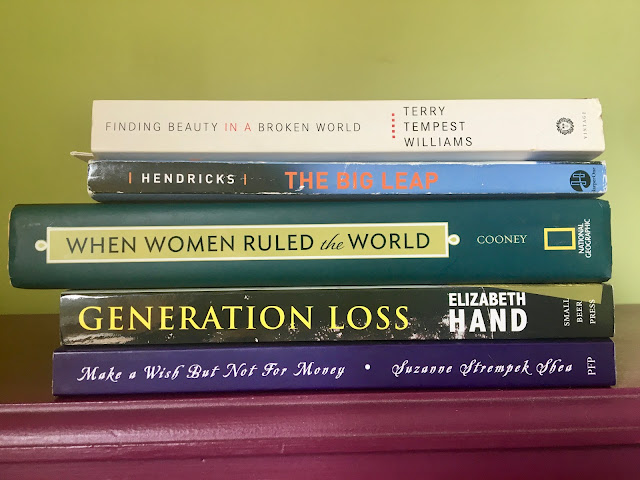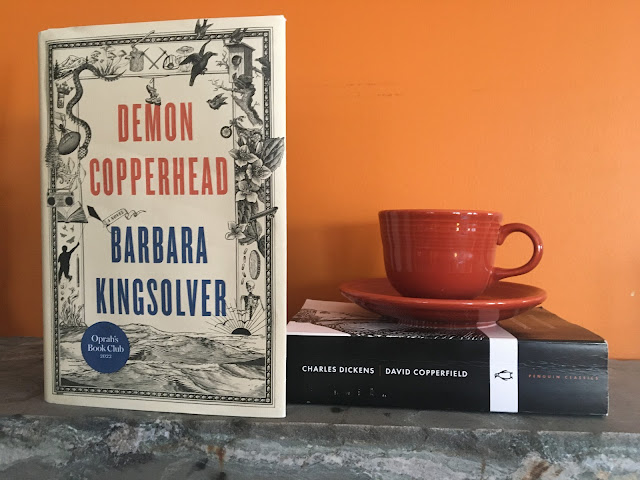A monthly post about what I've been reading, with aspirations but no real hope of reading down a very tall stack of books. Previous posts from this year:
May & June 2022
October 2022
November 2022
Every year when I get to my final Book Stack post of the year, I contemplate whether I should continue with these posts into the new year or not. After all, the blog is dead as a format, right? But this is also the only way I track what I read (I've tried a reading journal in the past, and I'm just not that into it, and I don't really like Goodreads, not least because it's part of the Evil Empire, and I don't care to note the date on which I start a book or how long it took to read), but I've kept up with a monthly reads blog post for X years now, and I know from flipping back through the 2022 posts that I read 86 books last year. Which is neither here nor there, but it's a fun fact. So will I keep going in 2023? We'll see. In the meantime, here are December's reads, starting from the bottom of the stack.
Nonfiction
There's an unwritten rule in Maine that if you own a camp (which means a vacation house on a lake, no matter how humble or luxurious), you must have, somewhere on the shelves of that camp (and if it's rustic, the shelves will be horizontal 2x4s of the open wall bays) a copy of
We Took to the Woods by Louise Dickinson Rich. In the book, Rich chronicled her experience of moving to an extremely remote spot of western Maine in the 1930s, where the only access to the Outside is by lake (boat in summer, over the ice in winter, and not at all during freeze-up and break-up). It's a funny and lighthearted book that makes even the most grueling physical labor involved in surviving, let alone keeping house and raising a family, under such circumstances sound like a lark. After reading Rich's
biography in November, I ordered used copies of some of her other books (when the three arrived, each with a turquoise hard cover, devoid of dust jacket, E asked me if I'd bought "one of those sets" of books--you know, the old ones with matching covers that you can, apparently, order as decorative elements irrespective of their contents). One of these,
Innocence Under the Elms, which I read in December, recount's Rich's childhood, growing up in Bridgeport, MA, where her parents ran the local newspaper. Nothing much of consequence happens in the book, but Rich's writing is so wonderful in its subtle humor and deep perception and her childhood so unusual--both compared to anything anyone alive has experienced (she was born in 1903) and compared to her contemporaries because of her family's occupation, social status, and politics--that it's a delightful, entertaining read.
Fiction
I pulled
Stitches in Time by Barbara Michaels (which I just
read three years ago and again
three years before that) off the shelf in early December with the intention of giving it to a friend who I knew would love a book about a haunted quilt (because I mean, come on, who wouldn't?). But then I decided to read the first chapter, as practice for a book coaching lesson on first chapters. And then I kept reading. Since it takes place around the holidays (it may be the only holiday-themed Barbara Michaels book, but I'm not sure and I'm determined to find out), it was a perfect read for December. Because as Dickens taught us, Christmas time is prime ghost time.
As I was reading Stitches, I remembered that Michaels had another vintage-clothing themed book, Shattered Silk, which I couldn't find on my shelves, so I ordered a copy of that. It takes place in the midst of a hot Washington summer, so wasn't as seasonal, and the source of trouble was human-caused, so no ghosts. But it turns out that some of the tangental characters in Stitches are the central characters in Silk, so it was fun to go back and read about where they'd come from (like an origin story prequel), although it wasn't as fun without the ghosts.
After reading those two books, I had to go back and reread (after ordering a copy--I can't believe I didn't already own this one) Ammie, Come Home, one of Michaels's first books. Ammie, like Stitches, is a delightfully creepy ghost story, although it's the house that's haunted and not a quilt. Two of the central characters of that story appear very tangentially in Silk and come back with a bigger role in Stitches. The three books are considered the Georgetown Trilogy, although they were probably not planned that way, having been published in 1968 (Ammie), 1986 (Silk), and 1996 (Stitches).
In December I also read "Santaland Diaries" by David Sedaris, which I always make time to do while sipping eggnog beside the Christmas tree.


